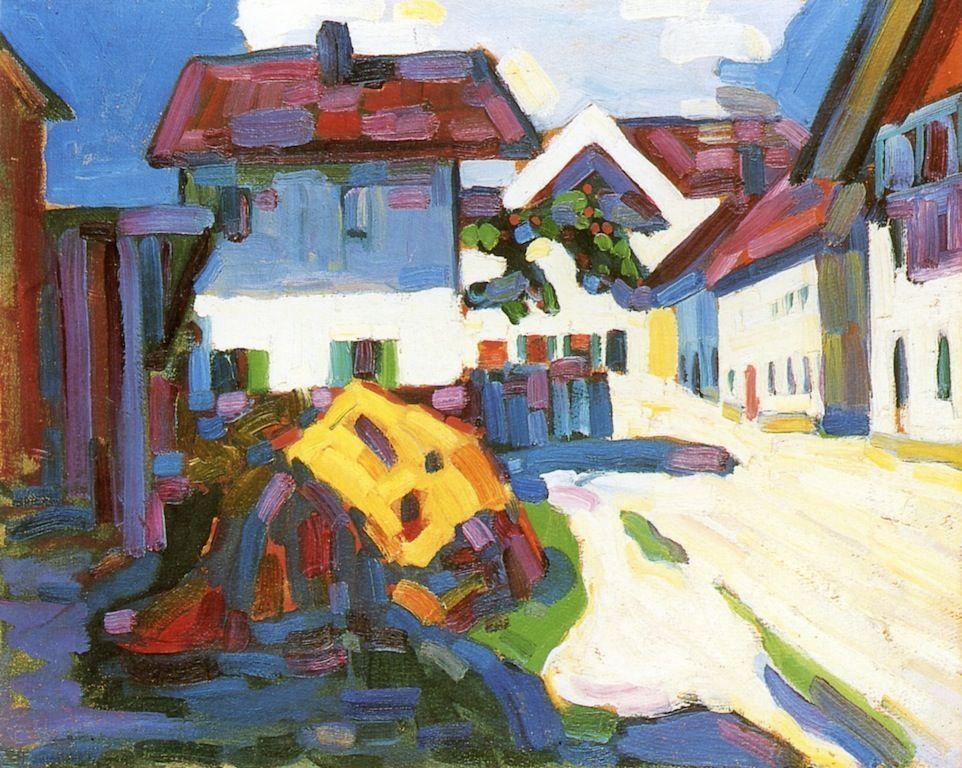Description
Wassily Kandinsky's painting "Street in Murnau" is a masterpiece of abstract art that has captivated art lovers since its creation in 1908. This work is a perfect example of Kandinsky's artistic style, which is characterized by abstraction and emotional expression.
The composition of the painting is fascinating, as Kandinsky uses geometric shapes and lines to create a sense of depth and movement in the image. The street itself seems to be in constant flux, with buildings leaning and twisting at odd angles.
The use of color in "Street in Murnau" is another outstanding aspect of the work. Kandinsky uses a palette of bold and vibrant colours, which mix and overlap to create a feeling of energy and vitality. Warm tones of yellow, orange and red combine with cool tones of blue and green to create a sense of balance and harmony.
The story behind the painting is also interesting. Kandinsky created this work while living in Murnau, a small town in southern Germany. The city and its surroundings were a constant source of inspiration for the artist, and "Street in Murnau" is a representation of the beauty and complexity of life in the city.
Plus, there are little-known aspects of the painting that make it even more fascinating. For example, Kandinsky is believed to have used the technique of "synesthesia" to create this work, which means that he associated specific colors with sounds and emotions. This allowed him to create an image that is not only visually stunning, but also evokes an emotional response in the viewer.

